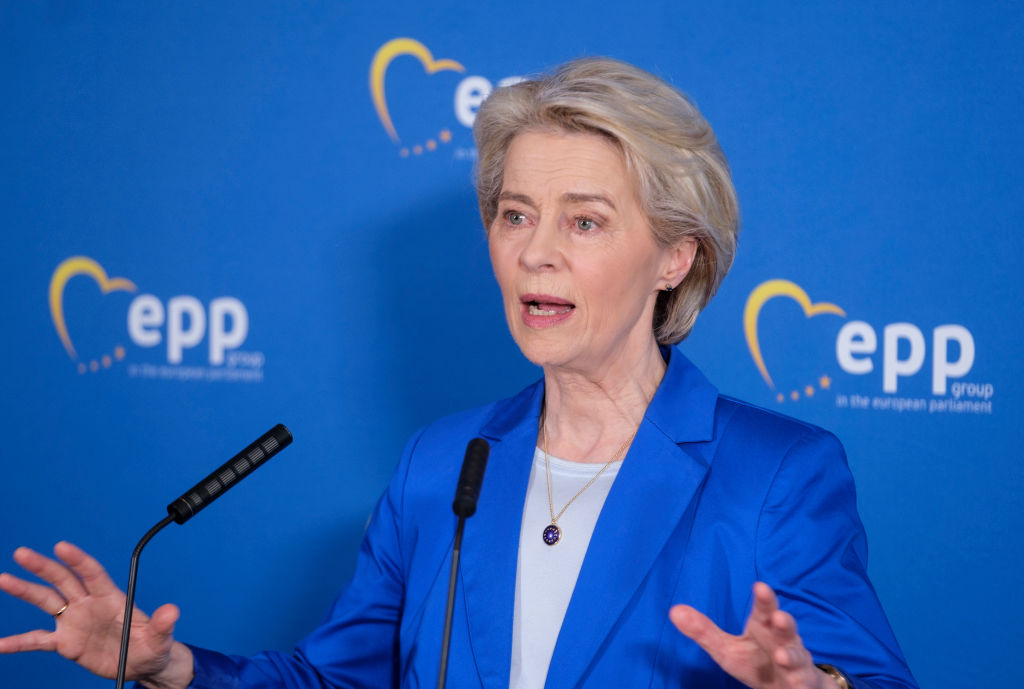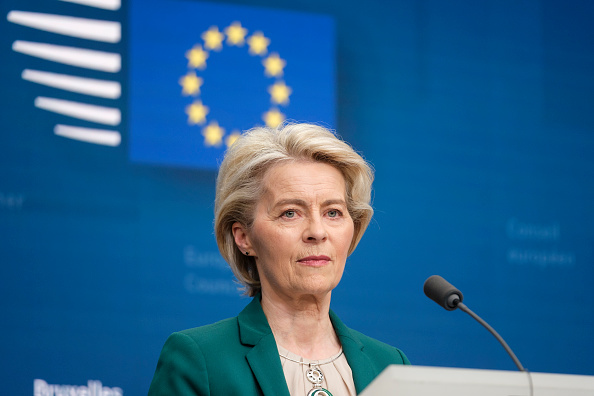The leader of the German liberal FDP party Marie-Agnes Strack-Zimmermann has strongly criticised President of the European Commission Ursula von der Leyen.
Strack-Zimmermann questioned von der Leyen’s suitability for a second term in a speech at a party conference in Berlin on April 27.
She argued that her management had been “extremely poor” and generated distrust among German businesses.
“How can you simply want to stand for re-election as Commission president after such a vote of no confidence in our economy?” asked Strack-Zimmermann.
She referred to a recent survey of chambers of commerce in Germany that showed only 5 per cent of industrial companies in the country considered the European Union to have become a more attractive place in the past five years.
Ursula von der Leyen is “finished” and will not be reappointed as European Commission president following the June European Parliament elections, senior European Conservatives and Reformists @ECRGroup MEP @HermannTertsch told Brussels Signal. https://t.co/kWraq3o0G6
— Brussels Signal (@brusselssignal) April 26, 2024
Her criticisms focus mainly on two areas: climate policy and European security.
She considered von der Leyen’s climate policy was “too restrictive”, especially for small and medium-sized companies, and pointed to her support for a ban on internal-combustion engine vehicles by 2035 as an example of this rigidity.
She also accused von der Leyen of neglecting European military co-operation during her mandate, despite clear signals from the US on the need for greater EU defence engagement within NATO.
The Liberals thus align themselves with the conservatives of the ECR and ID in their likely opposition to a second term for the German.
According to EC sources, not even the current President’s own party (EPP) is entirely happy with her.
Some criticised what was described as her excessive closeness to the Left during this legislature in order to win its support, which has managed to arouse resentment on the Right.
A right-wing that, according to all polls, could be decisive for the formation of a new executive after the European Parliament elections.
A right-wing majority in the assembly could be thwarted if the EPP continues with its current partners, something the party’s secretary general, Thanasis Bakolas, already commented on when he ruled out a coalition with the Right late last year. The EPP is allied with the Socialists and the Greens.
European Commission President Ursula von der Leyen is to defend her record in office with a make-or-break speech in Maastricht, amid a growing chorus of criticism. https://t.co/bm5K4lsUBT
— Brussels Signal (@brusselssignal) April 25, 2024





